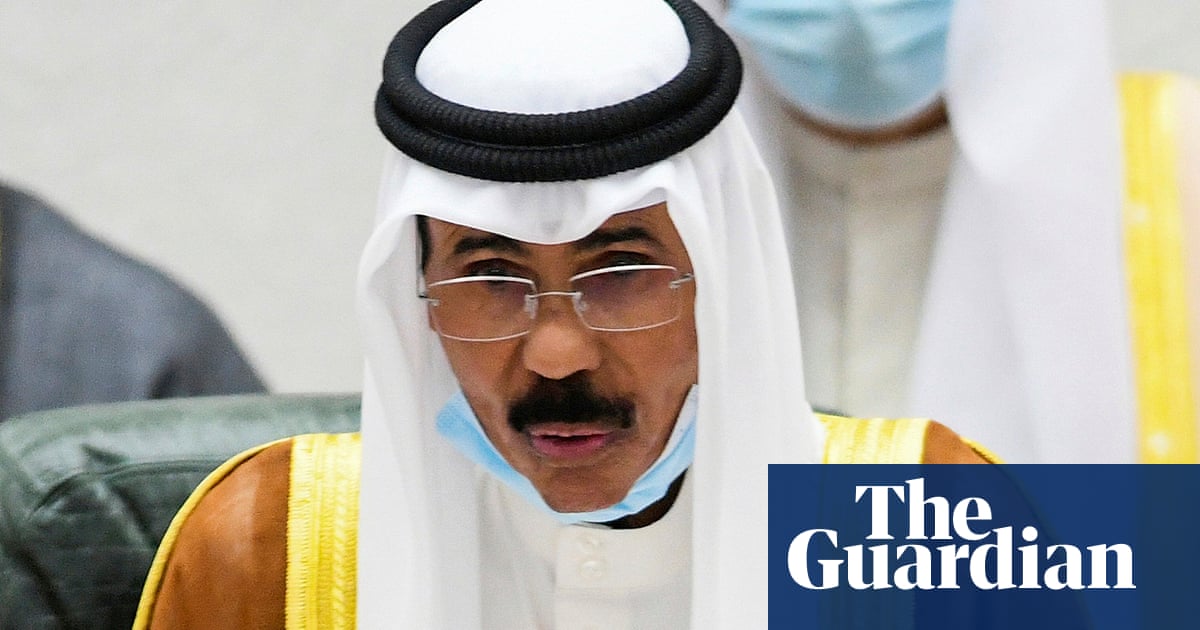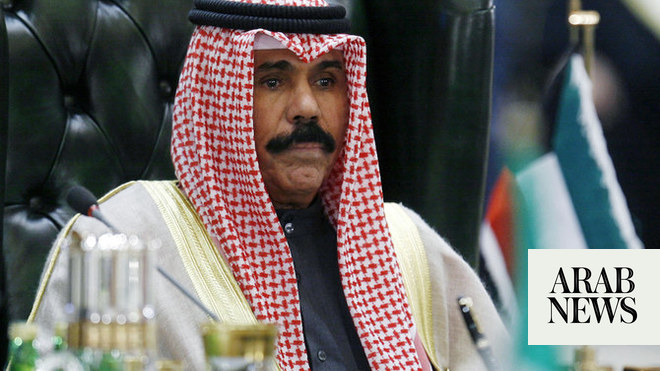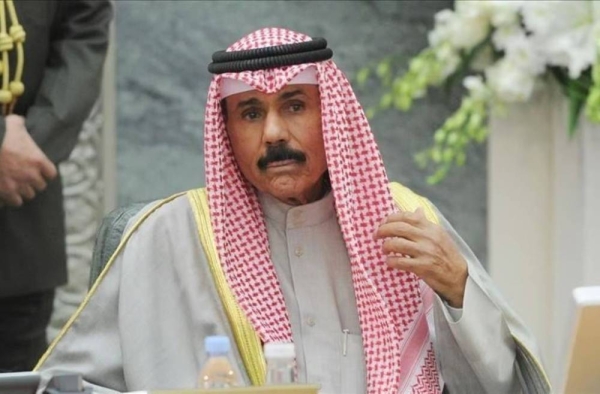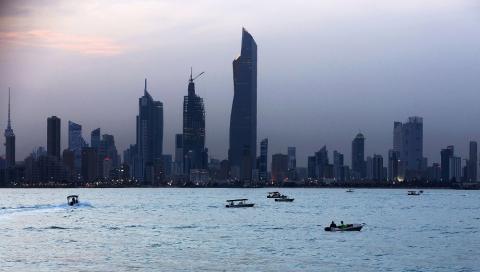
Kuwait’s emir, Sheikh Nawaf al-Ahmad al-Sabah, has died aged 86, according to the royal court.
The cause of his death was not immediately disclosed.
Crown Prince Sheikh Meshal al-Ahmad al-Sabah, 83, who has been Kuwait’s de facto ruler since 2021, when the frail emir handed over most his duties, was named as Sheikh Nawaf’s successor.
Kuwait TV broke into programming with verses from the Qur’an before making the announcement on Saturday.
In late November, Sheikh Nawaf was taken to hospital for an unclear illness. In the time since, the tiny oil-rich nation had been waiting for news about his health.
State-run news previously reported that he travelled to the US for unspecified medical checks in March 2021. The health of Kuwait’s leaders remains a sensitive matter in the tiny Middle Eastern nation bordering Iraq and Saudi Arabia, which has had power struggles behind palace doors.
Sheikh Nawaf was sworn in as emir after the 2020 death of his predecessor, the late Sheikh Sabah al-Ahmad al-Sabah, who had ruled for more than a decade. The breadth and depth of emotion over the loss of Sheikh Sabah, known for his diplomacy and peacemaking, was felt across the region.
Sheikh Nawaf previously served as Kuwait’s interior and defence minister but was not seen as particularly active in government outside those terms. However, he was largely an uncontroversial choice for emir, though his advancing age led analysts to suggest his tenure would be short.
Kuwait, which has a population of 4.2 million people, has the world’s sixth-largest known oil reserves.
It has been a staunch US ally since the 1991 Gulf war expelled the occupying Iraqi forces of Saddam Hussein. Kuwait hosts 13,500 US troops, as well as the forward headquarters of the US army in the Middle East.
Since he took over in 2020, Sheikh Nawaf maintained a foreign policy that balanced ties with those countries, while domestically eight governments were formed under his rule.
Under Kuwait’s constitution, the crown prince automatically becomes emir but assumes power only after taking an oath in parliament. The new emir has up to a year to name an heir.
Analysts and diplomats say that Sheikh Nawaf, and his crown prince, Sheikh Meshal, both appeared to align Kuwait more closely with the regional powerhouse, Saudi Arabia.
The new emir’s choice of crown prince and premier – who would be tasked with managing the government’s often stormy relationship with parliament – will be watched closely as a younger generation of Kuwait’s ruling family jostles for position.
Such factional struggles within the Sabah family have often played out in parliament as contenders for succession build their political capital and domestic bases.
Before handing over most of his constitutional duties to his designated heir, Sheikh Nawaf tried to secure a detente on the domestic political scene, including by issuing an amnesty pardoning dissidents that had been long-sought by opposition figures.
But the stalemate continued, leaving Sheikh Meshal to try to put an end to the political bickering this year by dissolving parliament and holding early elections in June.
Kuwait bans parliamentary parties but is still one of the region’s most politically liberal states, with a voluble political debate and the region’s most powerful elected legislative assembly that includes Sunnis, Shias, liberals and Islamists.










